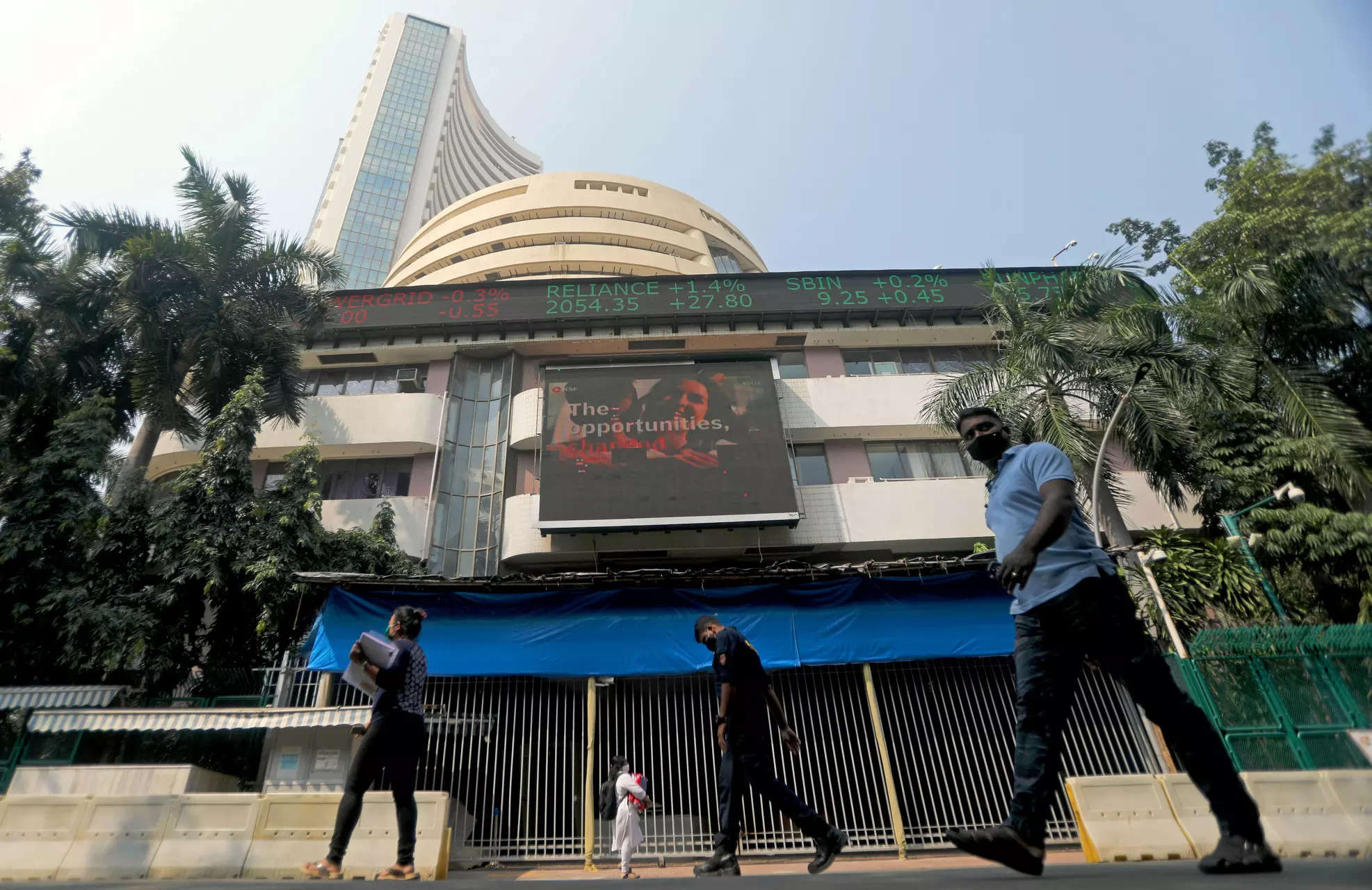India’s lenders such as SBI Cards & Payment Services and Bajaj Finance plunged at least 3% each after the central bank’s tighter-than-expected move to increase buffers on consumer loans sent shares lower across the financial sector.
The NSE Nifty Bank Index fell as much as 1.3%, with SBI Cards declining as much as 6.8%. IDFC First Bank, Bandhan Bank and RBL Bank also fell. Paytm, the SoftBank Group Corp.-backed fintech bellwether, slid as much as 2.5%. India’s NSE Nifty 50 Index declined 0.5% as financial services companies are the most influential segment of the nation’s $3.7 trillion market, with a 39% weighting in the benchmark gauge.
In order to check a surge in unsecured debt, the Reserve Bank of India Thursday asked banks to raise risk weights on some consumer loans, credit card receivables and bank credit to shadow lenders by 25 percentage points. The decision excluded mortgages, loans for education and cars, and debt backed by gold.
“This is tighter than expectations as RBI’s concerns were mostly on sub-50,000 rupees loans,” Jefferies Financial Group Inc. analysts including Prakhar Sharma wrote in a note. “Banks may also look to raise rates on loans to non-bank finance companies and tighten lending norms, which may impact earnings.”
RBI governor Shaktikanta Das has been urging banks to enhance internal controls as unsecured loans are growing nearly twice as fast as total lending. Last month, he asked bankers to look carefully at their risk strategies, warning the surge in personal loans may heighten risks down the road.
RBI’s move “is negative for the entire sector as it takes away the growth multiple” and would increase cost of funding for non-bank lenders,” said Nuvama Wealth Management’s analyst Mahrukh Adajania.
NSE’s banking stock gauge is trading at 1.8 times on one-year forward consensus estimate of book value, below the five-year average multiple of two times, according to data compiled by Bloomberg.
The NSE Nifty Bank Index fell as much as 1.3%, with SBI Cards declining as much as 6.8%. IDFC First Bank, Bandhan Bank and RBL Bank also fell. Paytm, the SoftBank Group Corp.-backed fintech bellwether, slid as much as 2.5%. India’s NSE Nifty 50 Index declined 0.5% as financial services companies are the most influential segment of the nation’s $3.7 trillion market, with a 39% weighting in the benchmark gauge.
In order to check a surge in unsecured debt, the Reserve Bank of India Thursday asked banks to raise risk weights on some consumer loans, credit card receivables and bank credit to shadow lenders by 25 percentage points. The decision excluded mortgages, loans for education and cars, and debt backed by gold.
“This is tighter than expectations as RBI’s concerns were mostly on sub-50,000 rupees loans,” Jefferies Financial Group Inc. analysts including Prakhar Sharma wrote in a note. “Banks may also look to raise rates on loans to non-bank finance companies and tighten lending norms, which may impact earnings.”
RBI governor Shaktikanta Das has been urging banks to enhance internal controls as unsecured loans are growing nearly twice as fast as total lending. Last month, he asked bankers to look carefully at their risk strategies, warning the surge in personal loans may heighten risks down the road.
RBI’s move “is negative for the entire sector as it takes away the growth multiple” and would increase cost of funding for non-bank lenders,” said Nuvama Wealth Management’s analyst Mahrukh Adajania.
NSE’s banking stock gauge is trading at 1.8 times on one-year forward consensus estimate of book value, below the five-year average multiple of two times, according to data compiled by Bloomberg.






